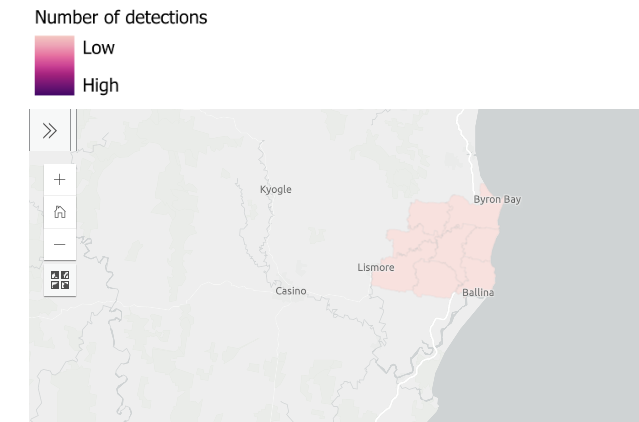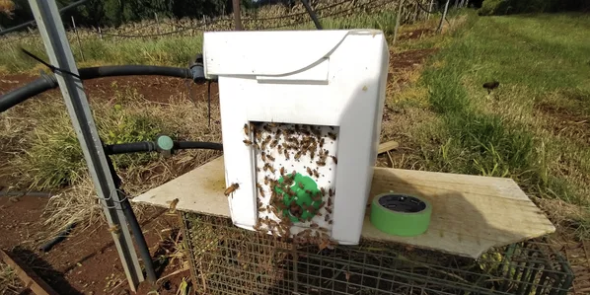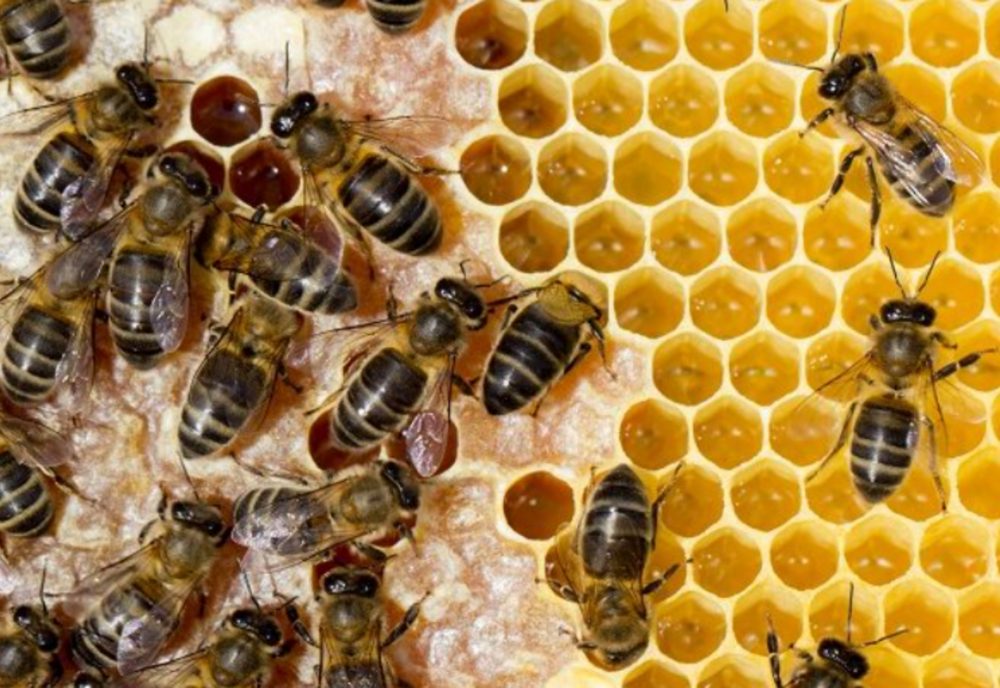Varroa mite has been detected in Lismore and the NRs
Simon Mumford
15 April 2024, 8:00 PM

The dreaded varroa mite was detected in Lismore and the Northern Rivers last week. While the impact may not be felt immediately, Jackie Morrison, owner of Honeyvale Farm at Boat Harbour, said it will really hit us in five to ten years.
Since varroa mite was detected at the Port of Newcastle in June 2022, the response was funded by the Commonwealth and the state and territory governments. Initially, the thought was to eradicate varroa mites from Australia. However, that plan of attack has changed to varroa mite management.
A NSW Department of Primary Industries (DPI) spokesperson said, "On 19 September 2023, the National Management Group (NMG) determined it was no longer technically feasible to eradicate Varroa mite, and the response is now working on a national transition to management plan."
"The mite is expected to spread over time, and beekeeper reporting of monitoring results is key to understanding where the mite is currently active. These results are available on the Varroa heat map https://www.dpi.nsw.gov.au/emergencies/biosecurity/current-situation/varroa-mite-emergency-response."
Jackie Morrison told the Lismore App, she is not exactly sure where the infected bee hives are because the DPI don't give that information out.
"It just says the Lismore area. There was a case found between Ballina and Lennox, and then there was a case found in the Lismore area, which will populate very quickly."

"It's very hard to find varroa mite. This is why it was in the country for so long before we knew it was here. But now that people are starting to get a bit better at looking for it, we realise how far it's spread."
The impact will not be felt immediately by local beekeepers, garden enthusiasts, and hobby farmers growing fruit and vegetables.
"If they weren't looking for it, they wouldn't know it was there. But then it breeds exponentially as the bees breed up. And then, when the bees naturally taper off over winter and don't breed as much, that's when the varroa mites start to accumulate more and more. Probably by next year or the year after, people will start to see hives badly affected by mites, and they might start seeing hives start to die off from it."
Jackie explained that the mite affects the bee and not the honey.
"The mites feed on the bee's fatty tissue, basically their immune system. So, because their immune system is affected by the varroa mite, and something the size of a basketball (in human terms) is feeding off them, the viruses that are normally knocked out naturally now accumulate and kill the bees. They are then less likely to be able to breed."
"The baby bees are less likely to be able to come out and be able to fly at all. They're less likely to be able to bring in stores, and they're less likely to be able to process the right nutrition. So, it's just a knock from all directions for the bees."

Jackie said the Northern Rivers has one of the highest concentrations of backyard beekeepers in the country, and we could lose 30 to 60% of bee-related companies going out of business.
"A lot of those beekeepers will not be able to manage the mites, and they will just get out of beekeeping. But the biggest impact I think we will see is to people who grow their own fruit and veg. This is the most fantastic area for gardens. Everybody's growing their own veggies or works in a market garden. There are heaps of really good quality market gardens in the area. A lot of these rely on feral honey bees, the same as macadamia orchards, they don't need to get beekeepers in to pollinate their crops because there are just so many feral bees in the area. It's such a perfect area for honey bees."
"It won't happen quickly, but over the next 10 years, pretty much 99.99% of all those feral honey bees will die out from varroa mite because it's not a native pest on honey bees. They just don't have any natural defences against it. Breeding bees that can fight it (varroa mite) naturally is really hard work."
"People with market gardens and people with veggies in their backyard and people with macadamia orchards and Citrus orchards, anything that's being pollinated by honeybees, will either need to get a commercial beekeeper in who's managing their hives for mite so keeping their hives alive, or they will need to be very good at making good habitat for native bees to be able to pollinate for them."
Jackie said the answer lies in providing a good habitat for native bees and good support for European honey bees.
"We have thousands of native bees that nest in the soil, and they're all great garden pollinators. They're not as good as European honey bees, that's why we use European honey bees, because you turn up with a box of 10,000 of them, and they do a fantastic job. But, people can put native bee hotels in and things like that."
"I don't really recommend the very cheap ones that you can just go and buy. I would recommend contacting your local Landcare Group. They would know exactly what size the bees can go through and what wood to use. Some of your very cheap ones are imported from China, and they've got timber that may have been sprayed, so it might not be very good, or it might be the wrong size for our native honey bees."
"We have a lot of native bees in the area, and the best thing people can do for their garden is support the native bees that are there and not not use pesticides in their gardens at all."
According to Jackie, Australia's issue is that no one has managed varroa mite before, so there are no experts in this field. That book is still being written.
Jackie warns locals about getting your advice from Youtube or the internet because they are more likely to be based in North America or Europe, which is not relevant to to Australia's problems in this climate.
"It's very tempting to just go down the chemical route that the USA and New Zealand went with, just throwing chemicals in your hive. But you can't do that; it affects the honey. Mites don't affect honey, but putting chemicals in your hive will affect your honey."

"People in this area, I guess, have to be very careful. If they keep their hives in the backyard, they'd be very well advised to get good-quality expert help on how to manage varroa mite."
Jackie may well become that local expert, as she has embarked on overseas trips to Hawaii, Fiji, the U.S. and New Zealand to learn as much as she can as part of a Nuffield Scholarship.
"In a couple of months, we're going to Europe to see what they're doing. Europe. is a lot colder than here, but they're also very restrictive on their chemical use, so they've been good at coming up with things like splitting hives to make brood breaks to knock varroa mite down."
While the immediate news is a bit doom and gloom and will have a medium-term impact for a lot of beekeepers and gardeners, the long term must be promising as Jackie and her husband, Luke Edwards, have just purchased Ballina Honey.

